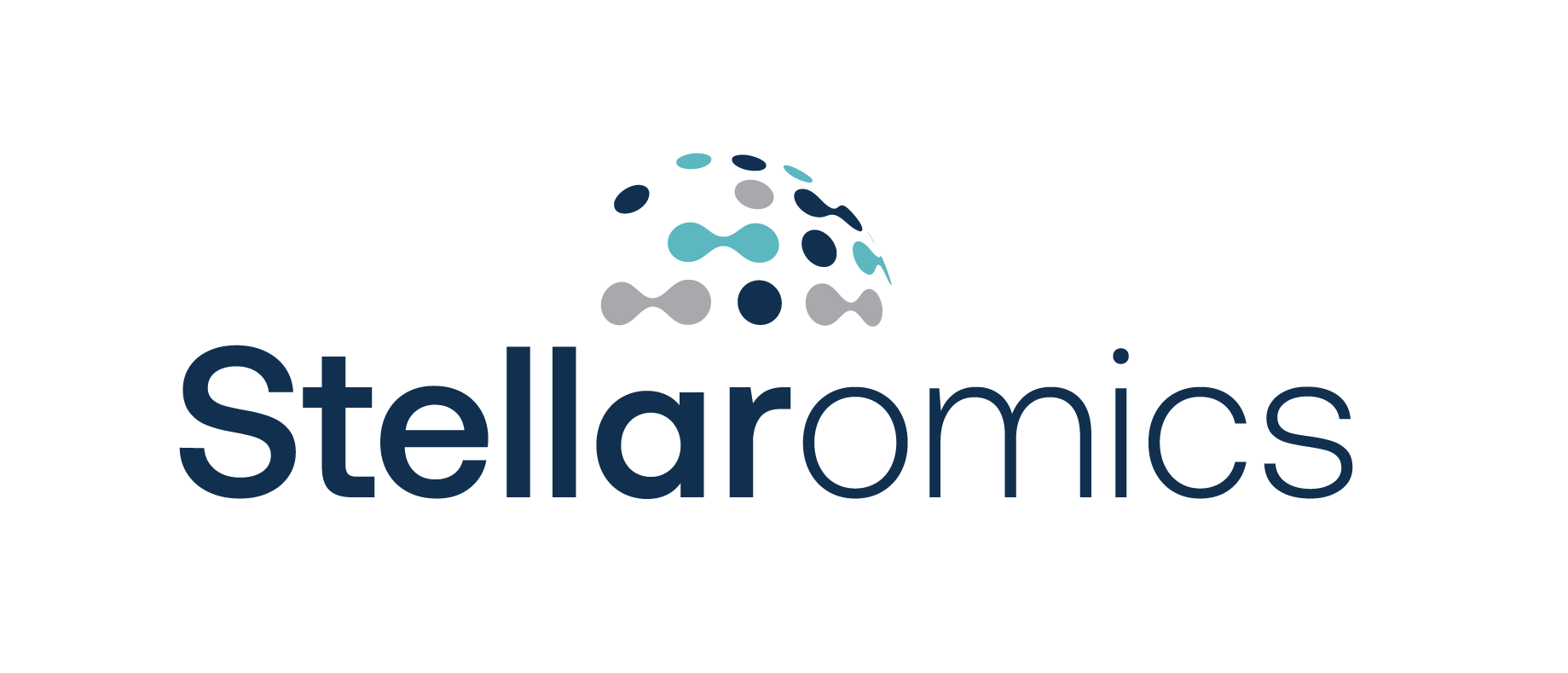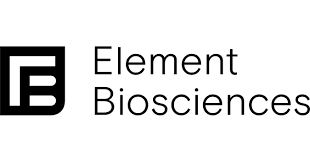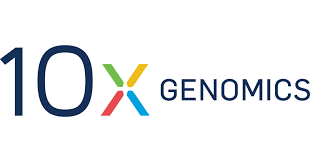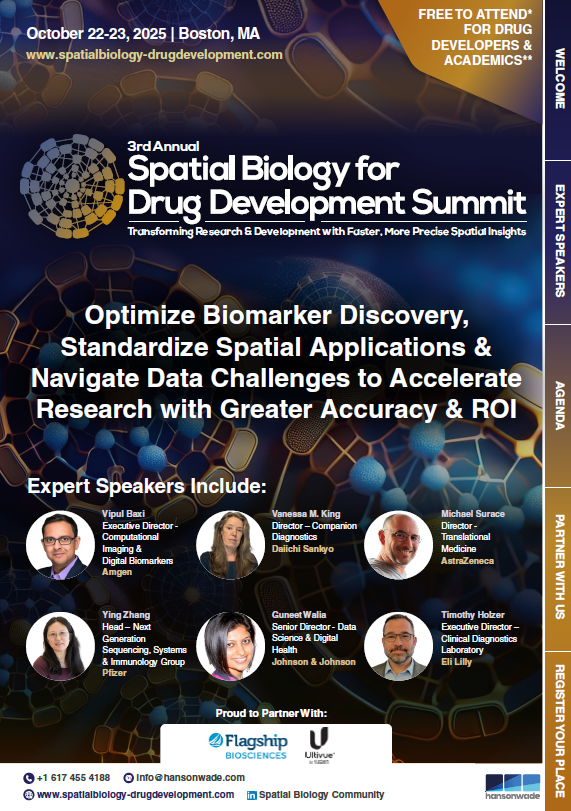Thank you to our speakers, sponsors, and delegates who joined us in Boston for the summit! If you are interested in the 2026 event, please get in touch at info@hansonwade.com
Welcome to the 3rd Spatial Biology for Drug Development Summit
Successfully De-risk Clinical Decision-Making, Standardize Spatial Biology Applications & Navigate Infrastructure & Data Challenges to Accelerate Workflows with Greater Accuracy & Return on Investment
As spatial biology technology advances, delivering unprecedented resolution, multiplexing, and reproducibility, new insights into disease biology are driving major breakthroughs across multiple therapeutic areas. Yet, key barriers still limit the full application of spatial biology in drug development. Overcoming these challenges is critical to achieving widespread adoption in research settings and beyond.
The 3rd Spatial Biology for Drug Development Summit offered delegates the opportunity to come together with leading biopharma experts to address these hurdles head-on. Across an intensive 2-day agenda, attendees explored practical solutions to issues spanning data infrastructure, multi-omics integration, standardization, scalability, and translation into the clinic. The 2025 forum equipped delegates with the latest data-driven strategies to not only overcome obstacles but to maximize the value of spatial biology for deeper disease insights, robust target identification, biomarker discovery, and more.
"This conference offers a unique opportunity for biopharma professionals to stay at the forefront of spatial molecular technology, deepen their understanding of disease, develop new therapeutics, and contribute to the advancement of precision medicine."
Director II, AbbVie

2025 World-Class Speaker Faculty Includes:





Previously Attending Companies Include:
“Attending conferences like the 3rd Spatial Biology for Drug Development Summit offers valuable opportunities to stay current with emerging technologies, gain insights into translational applications, network with industry leaders, and explore potential collaborations that can accelerate drug development efforts.”
Associate Director – Spatial Transcriptomics, Takeda
Official 2025 Partners
















